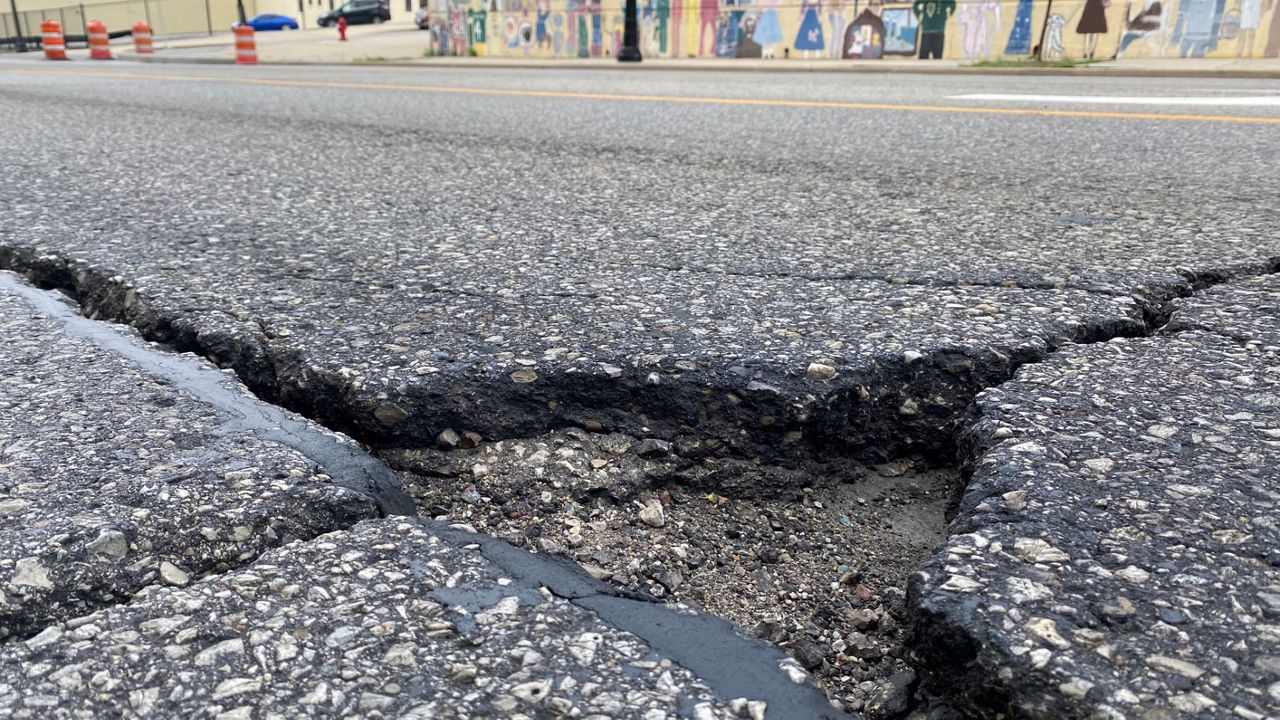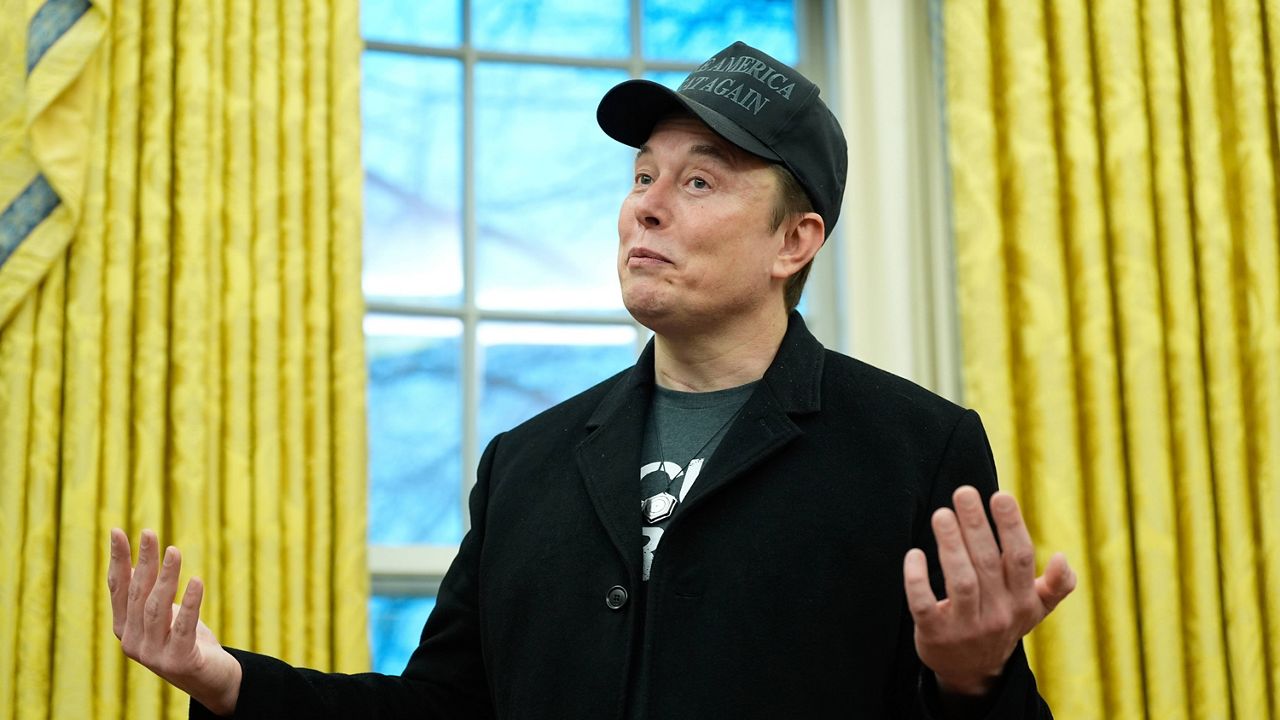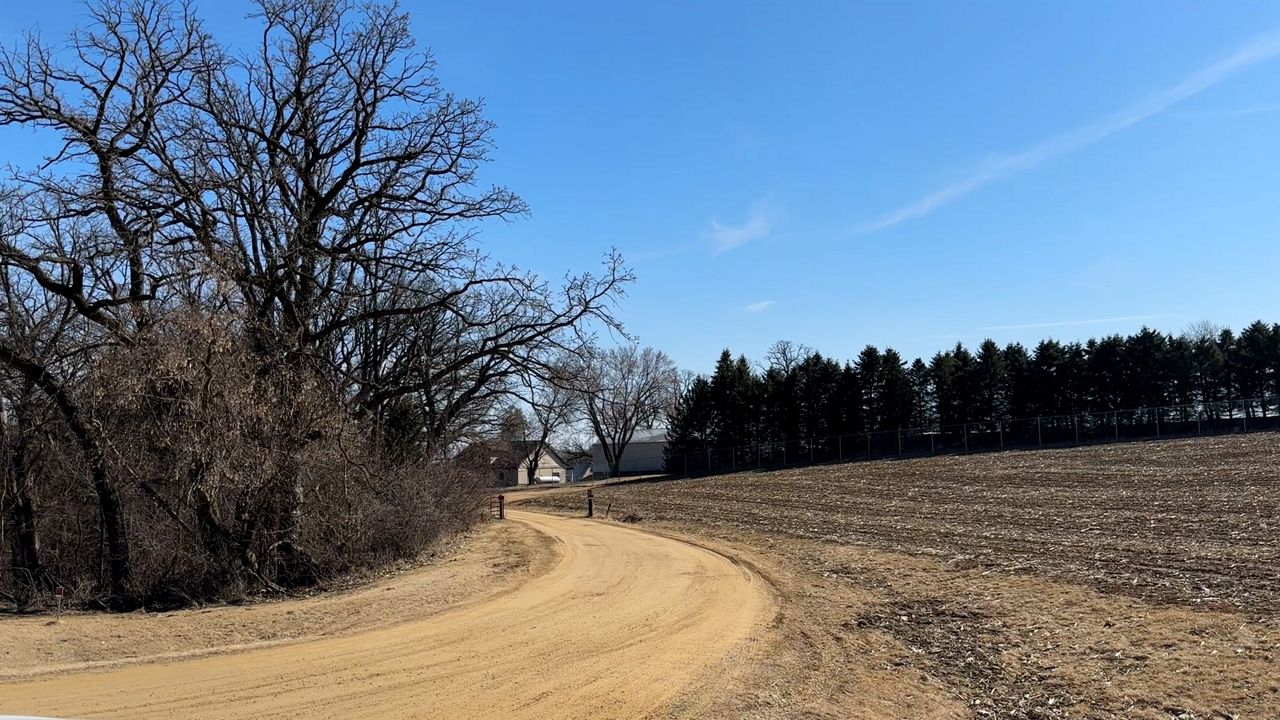MILWAUKEE — Milwaukee has some of the worst road conditions in the U.S., according to a recent study by Teletrac Navman, a tracking software company.
The study found that 54% of Milwaukee’s roads were in poor condition and only 16% were in good condition; the rest were either mediocre or fair.
Milwaukee tied for fourth with Honolulu, Hawaii, in the study for bad roads, falling behind three metro areas in California. Orlando, Florida had the best road conditions, according to the study.
Teletrac Navman defined “poor road conditions” as those that were “extremely deteriorated,” require low driving speeds, and have potholes or signs of distress that cover around 50-75% of the road.
Repairs for vehicles in Milwaukee also cost the most as a result of these poor road conditions. The average cost for vehicle repair was $944.
Milwaukee residents are no strangers to potholes. Over 9,700 pothole requests have been sent to the city’s Department of Public Works this year. That’s more requests than the department ever received throughout the entire year in both 2020 and 2021, according to Brian DeNeve of DPW.
“This is exceptionally high,” said DeNeve.
DeNeve said 2019 was a record year for potholes in Milwaukee, yet they’ve received more requests this April compared to April of that year.
So, why are there so many potholes this year?
DeNeve said the short answer is the fluctuations in temperature.
Early warm spells in February this year are suspected to be the culprit, said DeNeve. Freeze-thaw cycles like this cause the pavement to contract and expand. After a freeze, moisture thaws and leaves a void under the pavement, which caves in under traffic, according to DeNeve.
Filling potholes, DeNeve said, is not designed to be a long-term solution. He said paving or reconstruction of the roadway is often what’s needed.
However, that takes more resources.
“Proper transportation funding has been a discussion not just locally but nationally for years now,” DeNeve said. “And pothole filling is a repair we can provide very rapidly, but we consider it just one tool in proper infrastructure maintenance.”
That funding might come in the state's 2023-25 biennial budget.
Gov. Tony Evers announced Wednesday he'll travel across the state this week on his annual "Pothole Patrol" tour. On it, he'll repair some potholes and highlight some of the infrastructure funding in the proposed budget.
“In 2018, I made a promise to fix the darn roads, and I’m proud of our work over the past four years to do just that. But our efforts can’t end there—with a historic budget surplus, we have a historic opportunity to invest in the needs that have long been neglected, including building infrastructure, workforce, and economy that are ready for the 21st Century,” said Evers.
The Evers administration said they've already improved over 5,800 miles of roads and nearly 1,600 bridges in the governor's first term. In the budget, Evers has proposed allocating funds toward specific bridges and highways in the state, increasing general transportation aids in counties and municipalities by 40% in 2024, providing $50 million in segregated funds annual for the Local Road Improvement Program and more.
Earlier this month, Republicans on the Joint Committee on Finance voted to remove more than 540 provisions from Evers' budget, which includes several proposals to update the state's infrastructure.
“While I’m disappointed Republicans have chosen to waste this opportunity to pay down our state debt, save taxpayer money, and continue focusing on road improvement and maintenance, I remain hopeful that they will join me in making the investments necessary to help grow our state, support our communities, and lay the foundation for the future of our infrastructure for generations to come,” Evers said in a press release.
How to report a pothole
Residents can report potholes to DPW in three different ways:
- Call the City Unified Call Center at 414-286-CITY (2489)
- Submit an online service request
- Submit a service request via the mobile app MKE Mobile Action
DeNeve said on average, it can take about seven days for DPW to respond to a request this year. He said that’s longer than the usual response time. In part, he said that’s because the department is working with less staff than previous years coupled with more requests.
DeNeve said they’ll “continue to aggressively work to catch up, including weekday overtime and Saturdays.”
Last month, leaders in the Public Works Committee criticized DPW and the Milwaukee Mayor for their response to potholes.
“Residents deserve to know why potholes are not being addressed by the city in a timely manner, and especially along W. National Ave.,” said Alderman Robert J. Bauman, who is chair of the committee.
Milwaukee Mayor Cavalier Johnson on Monday was out accessing the pothole situation in the city. He even helped fill in a few potholes.
Today, I took some time to join @milwaukeedpw to fill some potholes. This year, there are already more pothole requests than there have been in the entire year in 2020 and 2021. The community helping us identify where the potholes are and DPW is working diligently to fill. pic.twitter.com/WJpLvJgBVx
— Mayor Cavalier Johnson (@MayorOfMKE) May 22, 2023
What can I do if my car has been damaged by a pothole?
Citizens whose car has been damaged as a result of a pothole or road conditions can file a claim with the city as long as it’s filed within 120 days of the event.
The document submitted should also contain your address and a statement of what relief you seek. If that’s money, you must state a specific amount.
Your claim should also include:
Proof of the amount of the claim (an itemized receipt or two itemized estimates)
A preferred phone number and email address
A detailed description of the incident that includes date, time and place
You can file a claim here.
However, if your car is damaged on state highways or roads, the state or county is not liable for your damage, according to the Wisconsin Department of Transportation.









